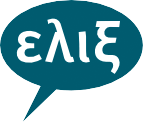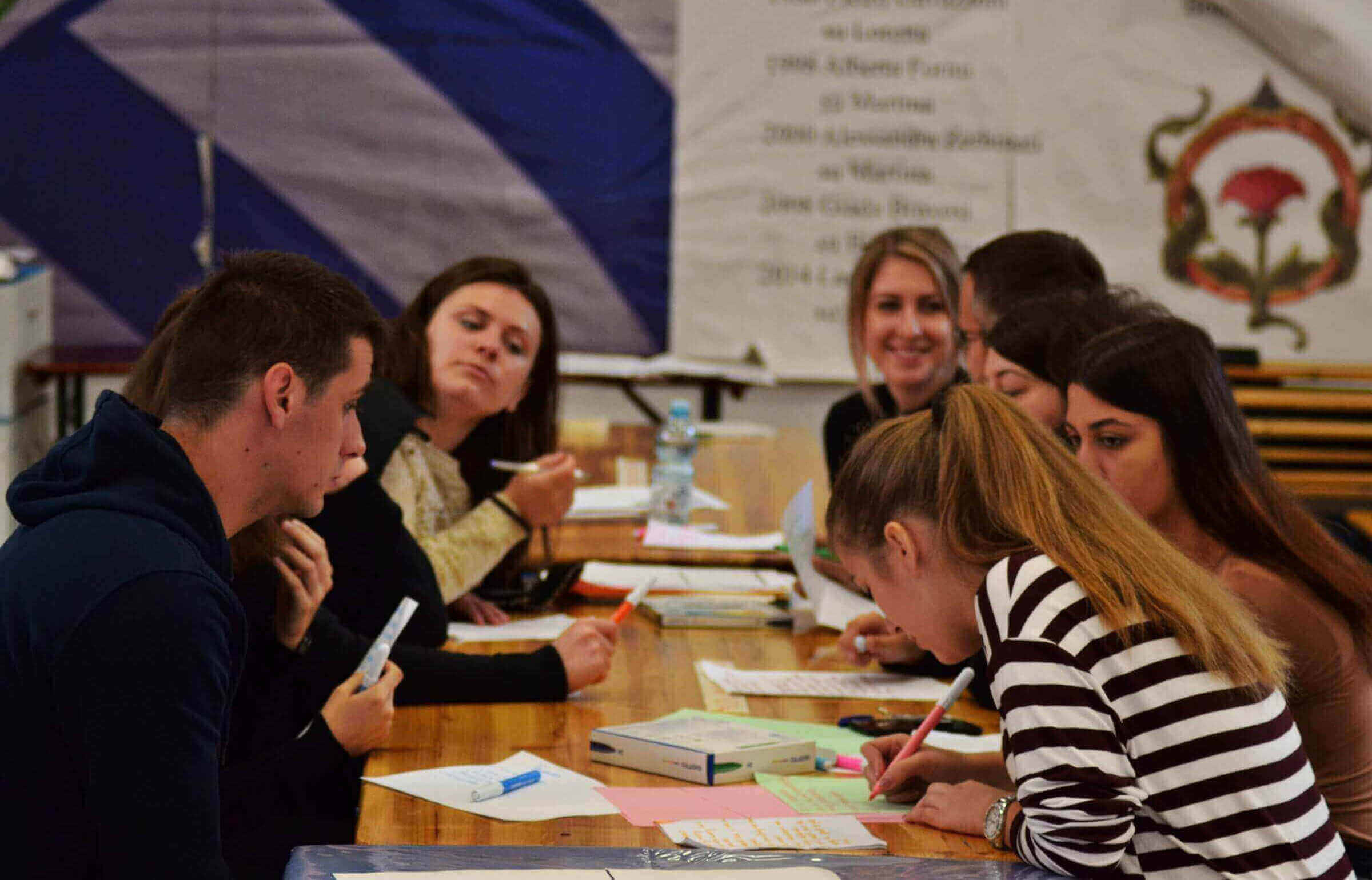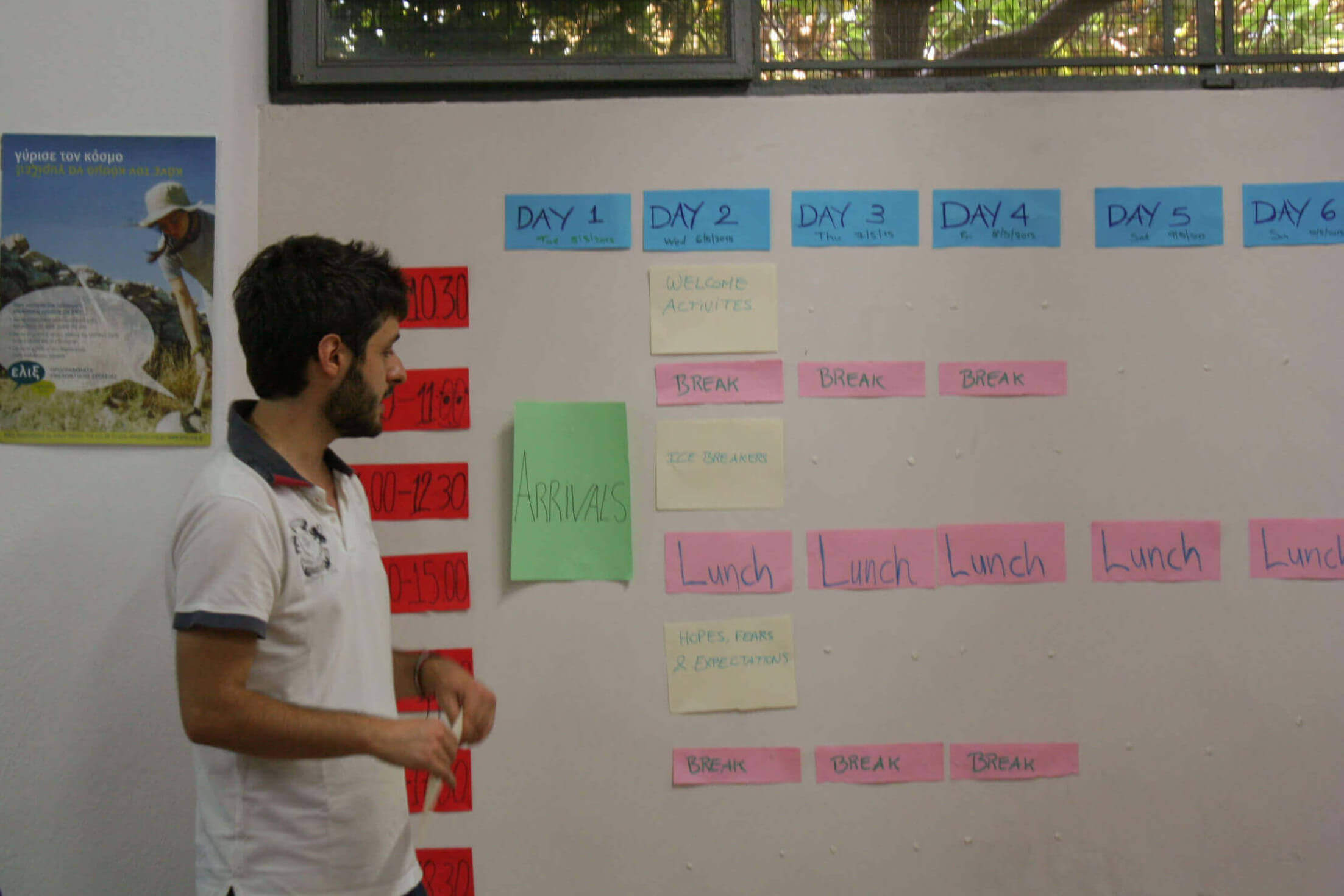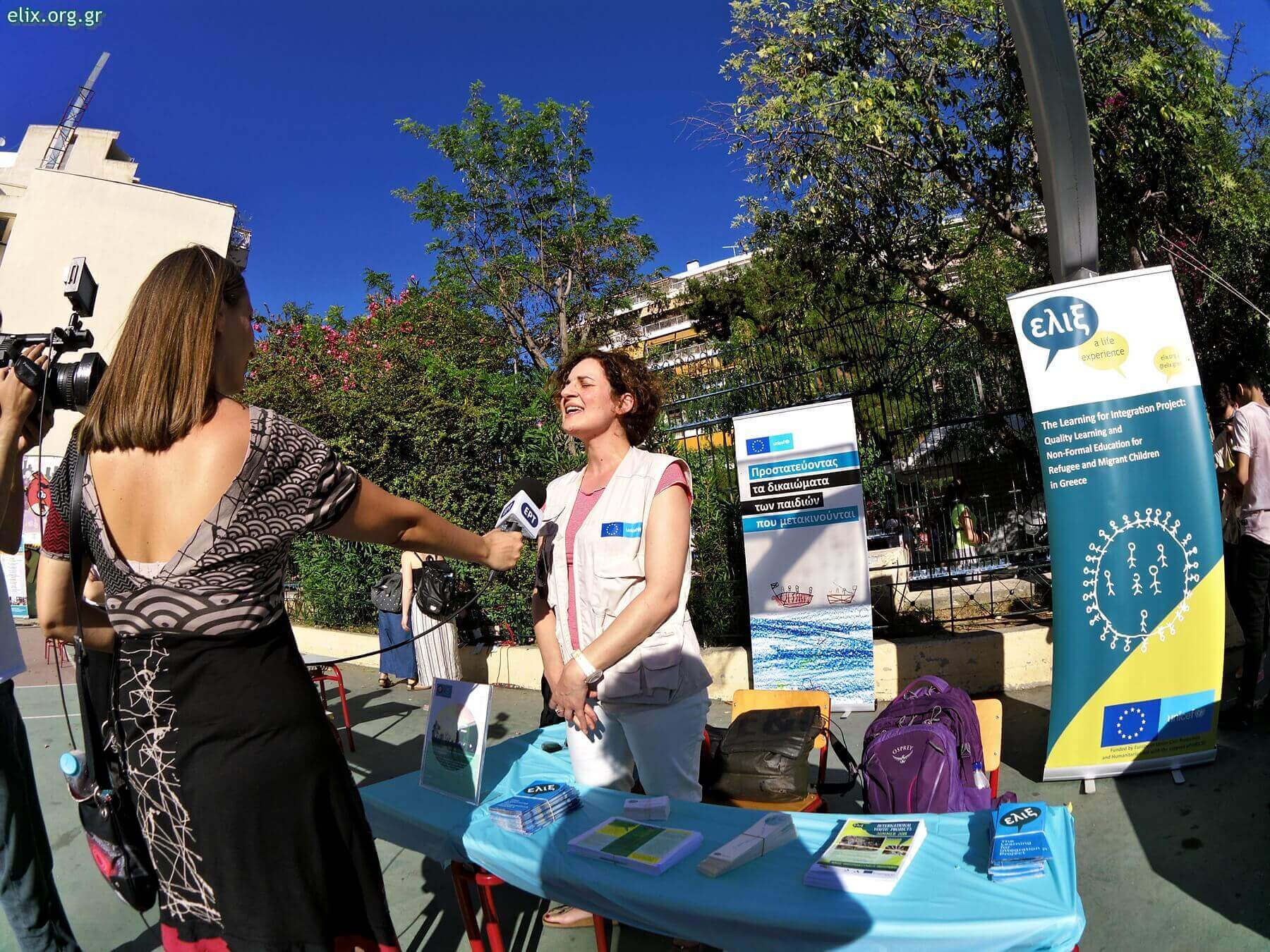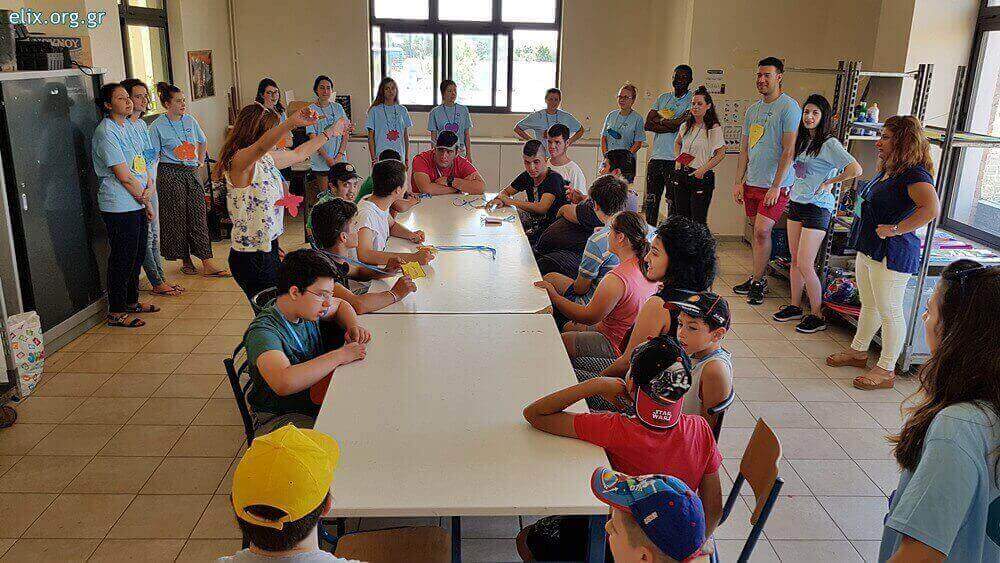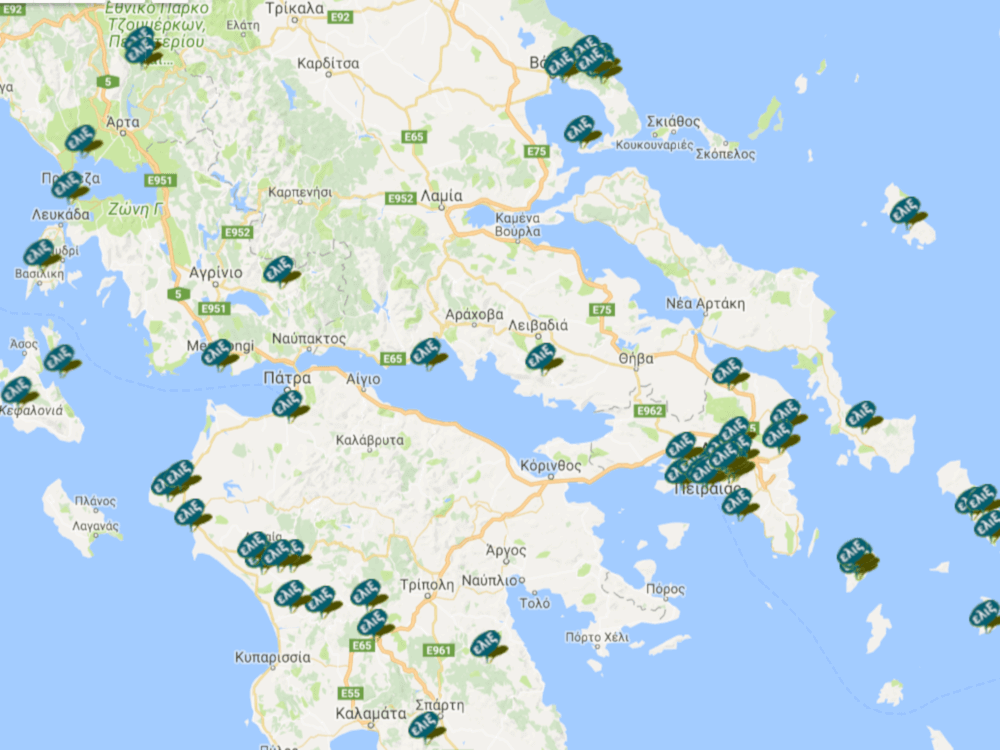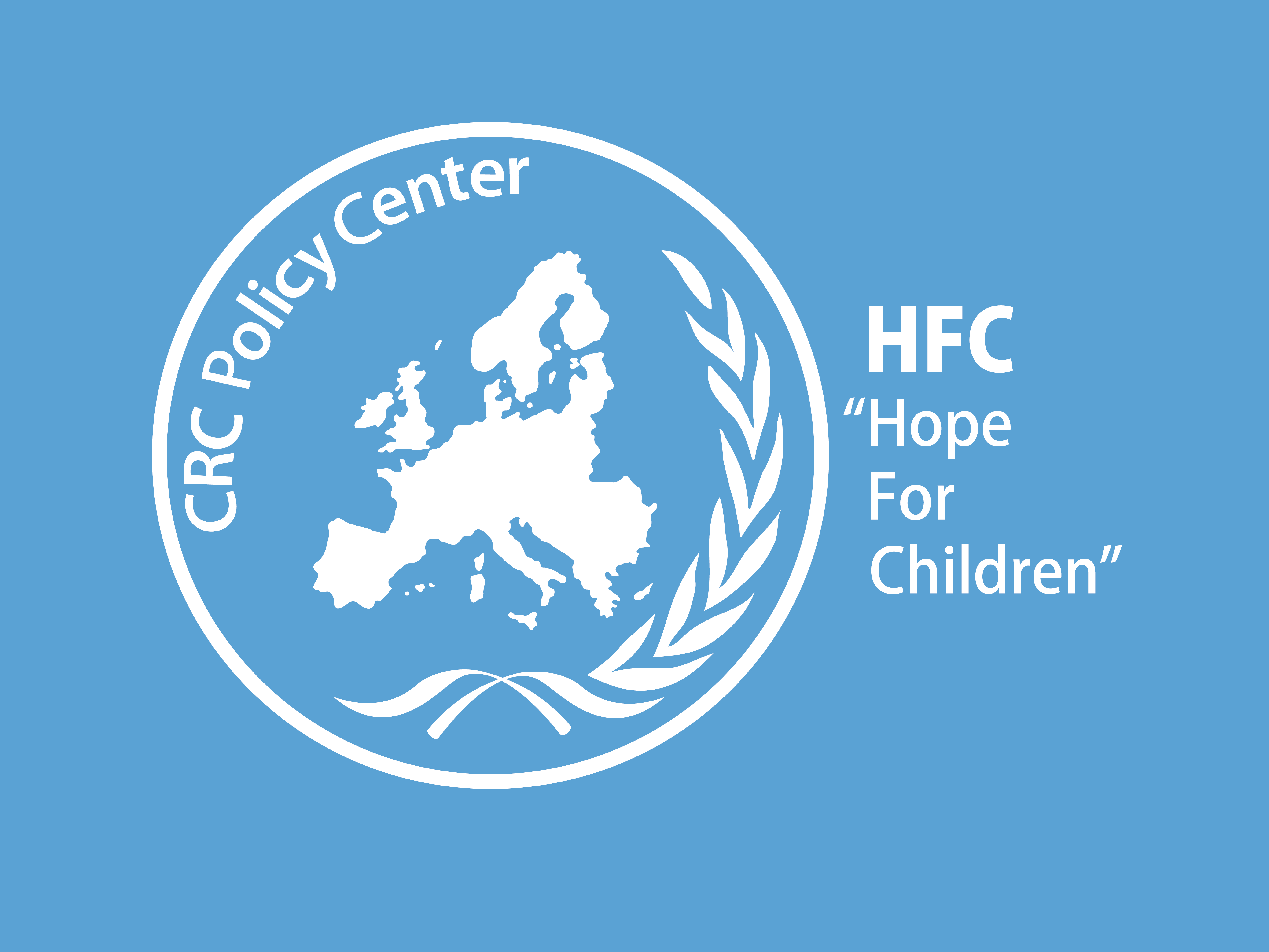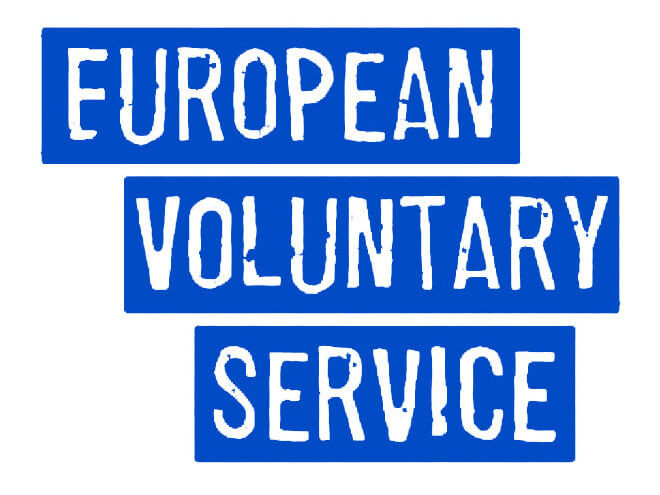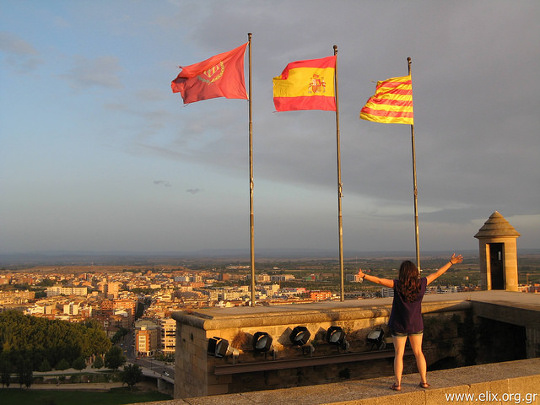(updated: 29/01/2019)
Διαθέσιμη είναι και πάλι η θέση στο πολύ ενδιαφέρον πρόγραμμα EVS μεγάλης διάρκειας με τίτλο “Stand Up for Children's Rights, Initiative and Research”, που συντονίζει ο διεθνής οργανισμός “HOPE FOR CHILDREN CRC POLICY CENTER”, ένα Διεθνές Ανθρωπιστικό και Ανεξάρτητο Ίδρυμα με έδρα στη Λευκωσία, στην Κύπρο.
Το πρόγραμμα, που θα σας δώσει την ευκαιρία να συνεργαστείτε και να αποκτήσετε πολύτιμη εμπειρία σε μία διεθνή ανθρωπιστική οργάνωση, υλοποιείται από τις 3 Σεπτεμβρίου του 2018 και μέχρι τον Σεπτέμβριο του 2019.
Προθεσμία υποβολής αιτήσεων: Τρίτη, 5 Φεβρουαρίου 2018.
Αναλυτικότερα:
The hosting organization
“Hope For Children” (HFC) CRC Policy Center is an International, Humanitarian and Independent Institution based in Nicosia, Cyprus. Our Institution is established on standards and principles of the UN Convention on the Rights of the Child and European Union Law.
It works on humanitarian and development policy relevant to the defense and promotion of children’s rights. It does so through research, grassroots program design and implementation, and advisory services offered to governments and international organizations. Our vision is to contribute to the protection and promotion of the rights of the child and to support active participation of youth in society.
The “Stand Up for Children's Rights, Initiative and Research” project
The main theme of the project is “Children's rights”, as well as related challenging issues and implications for practice, such as social or cultural discrimination, gender-based violence, sexual abuse, bullying, missing children, children on the move, and other phenomena that challenge implementation of children's rights.
The general aim of the EVS program is to foster mutual understanding amongst diverse young people; to promote tolerance and acceptance; and to develop transferable skills in the field of children's rights through research and designing concrete initiatives.
The specific objectives of the project are:
- Fostering understanding of social issues that youth and children face daily in their family and of social interactions that can affect their rights;
- Promoting and raising awareness on increasing demanding subjects, such as gender-based violence, sexual abuse and bullying, through field and desk research and practical activities;
- Developing key specific transferable skills to participants: proposal writing, research and evaluation methods, fundraising skills and social competences, sense of initiative, language and communication skills.
- Promoting solidarity and acceptance among young people, and social cohesion in the European Union;
- Developing understanding of European and international social issues related to children's rights;
- Promoting participation amongst youth and sense of initiative on a cause in which they believe.
Structure of the EVS program
HFC applies an EVS framework envisioning a volunteer-centered program for personal and professional development within the Research & Development Department. The framework will enable volunteers to be exposed and involved in an inter-cultural learning experience within a non-formal education environment, by developing an individual learner’s plan. “Hope For Children” CRC Policy Center believes that passionate but also trained volunteers have a stronger potential to influence and create an impact on, specific target groups and society.
Within this frame, EVS volunteers will receive support, information and recognition of their work in specialized departments:
A. INITIATION PHASE - for the first 2 months EVS volunteers will pass through an initiation phase with both departments of the Headquarters (HQ), the Research & Development Department and the Communication and Fundraising Department, thus receiving diverse responsibilities which will offer them the opportunity to adapt to the new work environment; the organizational culture; and the active projects and present activities. During this phase, EVS volunteers will benefit from an Initiation Training designed and implemented together by staff and interns from the HQ having the potential to empower both interns and accepted EVS volunteers through the process of sharing knowledge and abilities.
B. SPECIALISATION PHASE – during the remaining 10 months volunteers will receive responsibilities exclusively within the Research & Development Department. This structure will enable them to develop specific skills and specialized knowledge, and to be able to offer reliable support to the staff for more complicated tasks with great complementary value. Additionally, the organization wants to pass on its expertise in non-formal education and support youth initiatives that are in the scope of its mission.
The expected learning process of the EVS project "Stand Up for Children's Rights" has the following interactive structure with great potential to offer knowledge, skills and expertise.
The structure of the program invites each volunteer to go through a long process of assessment and constant evaluation, to reward the moments of progress and to signpost situations where further assistance is needed to accomplish his/her responsibilities and fulfil his/her goals.
- From the pre-selection phase the volunteer is invited to present an idea for a creative personal project s/he would like to develop during the EVS program; this process encourages the volunteer to envision him/herself as an active member of the team even before arriving in Cyprus.
- When the selection process has been completed, during the first month of the program, EVS volunteers are encouraged to develop 5-20 Learning personal and professional goals which will become a point of reference, a sort of personal guide and attitude of accountability for their learning process during the whole project. The EVS supervisor and mentor are fully aware of volunteers’ Learning Goals from the second month and offer their support for their fulfillment.
- All volunteers will benefit from an Initiation Training in the first two weeks of their program that will enable them to get acquainted with the organization’s policies and procedures, as well as with their future responsibilities.
- After two months, volunteers will present a Personal Creative Project/initiative that they would like to develop in the following 10 months, to the Director of the Research&Development Department. Volunteers will receive support from the Director/the team for the implementation of the project.
- All volunteers will be motivated to write at least 5 articles (in the 12 months of the project) related to the topics with which the Research&Development Department deals; articles will be published on the HFC Article Zone blog; this activity will enable volunteers to do research on topics that particularly interest them.
- The volunteer will have the extraordinary opportunity to learn about project development and implementation. He/she will see all phases and life span cycle of a project, that is, initial identification of needs to be addressed; design of the concept idea; research of the right source of funding; finding the right partnership for a strong collaboration; writing the proposal and coordinating and implementing the proposed activities.
- Through practical experience, as well as non-formal education workshops, volunteers are encouraged and supported to acquire several key competencies and transferable skills in areas related to communication (with our staff, partners and beneficiaries); facilitation of daily tasks of the department; substantial knowledge and abilities in the area of promotion and protection of children's rights at national and international level.
Linguistic support will be offered by enrolling all volunteers on the Online Linguistic Support System.
Digital competencies will be acquired by using social media platforms for the dissemination of the project, and PowerPoint during educational workshops. Different social media platforms will be introduced to volunteers through the trainings provided by the organization. In this way volunteers will become familiar with creative media tools and the Cloud System where they can find diverse documents that they can have at their disposal, as well as with other resources that they can use creatively for non-formal educational learning.
Learning to Learn skills will be developed through trainings from the organization, as well as constant mentorship. The support tasks, referring to any support activity and assistance in the progress of the regular schedule and activities of the Department, and the research responsibilities will enable volunteers to learn and experience first-hand, by assisting the team from the creation of the concept idea, to identifying the right funding, to the implementation of the activities. Furthermore, living and working in another country for 12 months is itself a process of learning and constant adjustment. Through daily interactions and trainings, volunteers will gain skills to cope with conflict and improve their communication skills. Cultural awareness and expression will also be reinforced through everyday experiences and volunteers’ involvement in non-formal education trainings will foster their creative side.
Social and civic competencies are expected to be developed at a great extent, since the experience will allow volunteers to come in contact with various people from different social and cultural backgrounds, to become active citizens, and participate in all kind of activities.
Professional Support
Volunteers will have a very supportive environment during their EVS service. The Director of the Department of Research & Development and the EU Project Support Officer (the EVS Coordinator) will offer the work structure and the tools which will allow volunteers to integrate in the easiest and fastest way within the daily life of the activity. Volunteers will have the opportunity to collaborate and work with all the staff of the organization and will be challenged to address different needs that the Research&Development Department activities might suggest.
There will be a process of continuous adjustment according to volunteers' interests and learning goals and the department director's feedback. The coordinator will assist volunteers with the process of documenting and disseminating the EVS project and will also provide them with the necessary knowledge and tools to do so.
Work schedule
Volunteers will work 35 hours weekly, which include staff meetings and language lessons. The weekly staff meetings will be an opportunity for volunteers to talk about issues that might arise in the work environment. Volunteers are entitled to take 2 days off every month. It is their choice how and when to take their holidays, as long as the dates are agreed upon in advance with the Director of the Department of Research & Development.
Mentoring
Mentors have already experience in mentoring previous volunteers. All of them are interested and equipped with the knowledge needed to provide personal support and help volunteers to integrate into the society and overcome cultural and social barriers. Furthermore, some of the mentors have experienced similar situations and, therefore, have an understanding of the issues that volunteers might face. EVS mentors will also be responsible for assisting volunteers with the process of identifying and developing their key competencies and filling out the Youth Pass. They will meet volunteers twice a month and/or more often if volunteers wish to do so, and they will be responsible for giving them information about events and other groups and organizations, as well as for helping them with the integration process and any other issues that may arise.
Accommodation
Volunteers will be provided with accommodation in a rented apartment/house (as close as possible to the location of the shelters) for the purpose of the EVS project in Nicosia, Cyprus.
Bus cards/bicycles
Volunteers will be provided with a bus card or a bicycle for local transport upon request.
Pocket money
The pocket money allowance for EVS volunteers in Cyprus is 110 euros per month. Every month each volunteer will sign a document that confirms the reception of pocket money.
Volunteer’s profile
We are looking for young people aged 18-30 years old. The desirable profile indicators of the volunteers that the Research&Development team will focus on for selection is the following:
1. Has the ability to work in a multicultural environment and the ability to engage, work and live in inter-cultural dialogue and communication.
2. Willing to undertake grass roots initiatives related to children’s rights and vulnerable groups;
3. An interest in/willingness to learn or experience desk and field research;
4. Shows interest in supporting staff in the implementation of the active projects related to gender-based violence, gender equality, juvenile justice, positive parenting, migration, asylum seekers, or social integration of refugees;
5. Flexible and has organization and problem-solving skills;
6. Ethical person with no prejudices and with respectful attitude towards non-discrimination and mutual respect principles;
7. Good knowledge of English is recommended. Knowledge of other languages will be considered as an advantage.
The above characteristics are recommended, due to the nature of the EVS project and the sensitivity of the issues that need to be addressed: children’s rights and vulnerable groups. All necessary skills and knowledge for carrying out the tasks can be enhanced during the project. It is important to note that, although participants will be equal members of the team, they will act and be responsible as volunteers and will not substitute staff.
Volunteer’s tasks
Our Organization respects volunteer's personal health, safety and dignity and all tasks are strictly in line with European and national laws. At the Research&Development Department volunteers will be integrated in a multileveled, multidisciplinary and interactive work structure and will be encouraged to take creative initiative.
Volunteers' responsibilities
- Developing new initiatives and enriching the network, by looking for new partnerships with organizations that seek to protect and promote children’s rights among disadvantaged and vulnerable groups and communities; 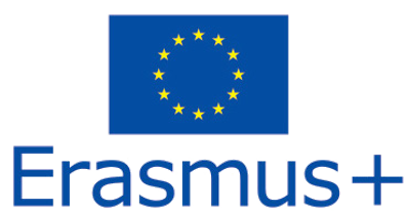
- Supporting and creating analysis and reports on laws and policies related to children at national level;
- Identifying areas for advocacy and/or research at national and international level;
- Researching on issues concerning children’s rights in conflict areas across the globe;
- Developing initiatives of partners and other national and international stakeholders on child rights issues;
- Coordinating personal research initiatives, also in cooperation with external partners;
- Empowering children and young people, in order to make their views heard and to actively engage them in promoting their rights.
Volunteers’ Activities
Specifically, volunteers will be involved in the following detailed three diverse activities:
Support and administrative activities where volunteers will assist in the progress of the regular schedule and activities of the department:
1. Communicating with partners and keeping them updated with the progress of our activities;
2. Reading and analyzing papers and keeping track of papers and other research material;
3. Assisting staff in preparation of regularly scheduled reports;
4. Supporting administrative daily tasks of present active projects;
5. Office work: correspondence by e-mail, technical assistance;
6. Administrative tasks related to active projects (emails to partners and authorities; letters and reports to national and international agencies; preparation of agenda and materials for meetings; taking minutes, photos at official events etc.)
7. Promotional activities – preparing press releases, updating the web page, drafting communication strategies, social media platforms or active projects;
8. Supporting the process of fundraising, by identifying new sources of funding from local to international, preparing letters to organizations fundraising or activities; identifying and connecting possible donors;
9. Assisting staff to identify new partnerships and new networks to join.
Research (primary and secondary), surveys tasks, country reports about themes and topics connected with:
1. Children’s rights promotion and protection;
2. Disadvantaged and vulnerable minorities/children;
3. Sexual violence against children;
4. Gender equality and gender-based violence;
5. Child-friendly justice systems;
6. Positive parenting;
7. Bullying;
8. Evaluation methods and possibility for placement in foster care families.
Creative activities and initiatives that can take place once or more and are not part of the regular program of the R&D department, but have complementary value:
1. Assisting in organizing campaigns and workshops to equip children, their families and societies at large with knowledge and tools to prevent and report sexual violence against children, thereby raising awareness of its extent.
2. In cooperation with our staff, organizing international campaigns/conferences about projects that aim at raising awareness on children rights; the needs of Children on the Move; developing and promoting the adoption of appropriate policies within the EU agenda to respond to this phenomenon at EU level and throughout Europe.
3. Writing at least five articles that will be published on Article Zone Blog, a blog dedicated to articles written by HFC team.
4. Children's rights awareness trainings in school or other educational settings.
Selection Process
Volunteers will be selected according to their profile and interest for this project in a transparent and objective way, regardless of any religious and ethnic backgrounds, as well as following criteria of inclusion and non-discrimination.
The pre-selected candidates will go through an interview, conducted in order to determine their suitability and motivation. They need to be convincing about their motivation and present a clear understanding of the cause of our Organization, as well as of the core values and objectives of the Erasmus+ project.
As an important part of the selection process, each volunteer will be asked to develop a draft of a personal project within the mission and vision of “Hope For Children” CRC Policy Center with clear learning goals and with a clear vision for engaging in the facility, research and creative responsibilities during the EVS program.
Για να κάνετε αίτηση, αποστείλτε το βιογραφικό σας και μια σύντομη δήλωση στα Αγγλικά σχετικά με το ρόλο ενός εθελοντή (προφίλ, προσωπικότητα, δεξιότητες) και πώς μπορείτε να συμβάλλετε στο πρόγραμμα αυτό στο Αυτή η διεύθυνση ηλεκτρονικού ταχυδρομείου προστατεύεται από τους αυτοματισμούς αποστολέων ανεπιθύμητων μηνυμάτων. Χρειάζεται να ενεργοποιήσετε τη JavaScript για να μπορέσετε να τη δείτε. γράφοντας "Application, EVS “Stand Up for Children's Rights, Research and Initiative” 2018/2019 - Ονοματεπώνυμο" στο θέμα του μηνύματος ηλεκτρονικού ταχυδρομείου, μέχρι την Τρίτη, 5 Φεβρουαρίου 2018.
ΠΡΟΣΟΧΗ!!! Στην αίτηση, μην ξεχάσετε να αναφέρετε στο email ότι η ΕΛΙΞ είναι η οργάνωσης αποστολής σας (sending organization). Μην ξεχάσετε τα παραπάνω emails να τα κοινοποιήσετε (Cc:) στην ΕΛΙΞ στο email μας Αυτή η διεύθυνση ηλεκτρονικού ταχυδρομείου προστατεύεται από τους αυτοματισμούς αποστολέων ανεπιθύμητων μηνυμάτων. Χρειάζεται να ενεργοποιήσετε τη JavaScript για να μπορέσετε να τη δείτε. ώστε να μπορέσουμε να παρακολουθήσουμε τις αιτήσεις σας.
